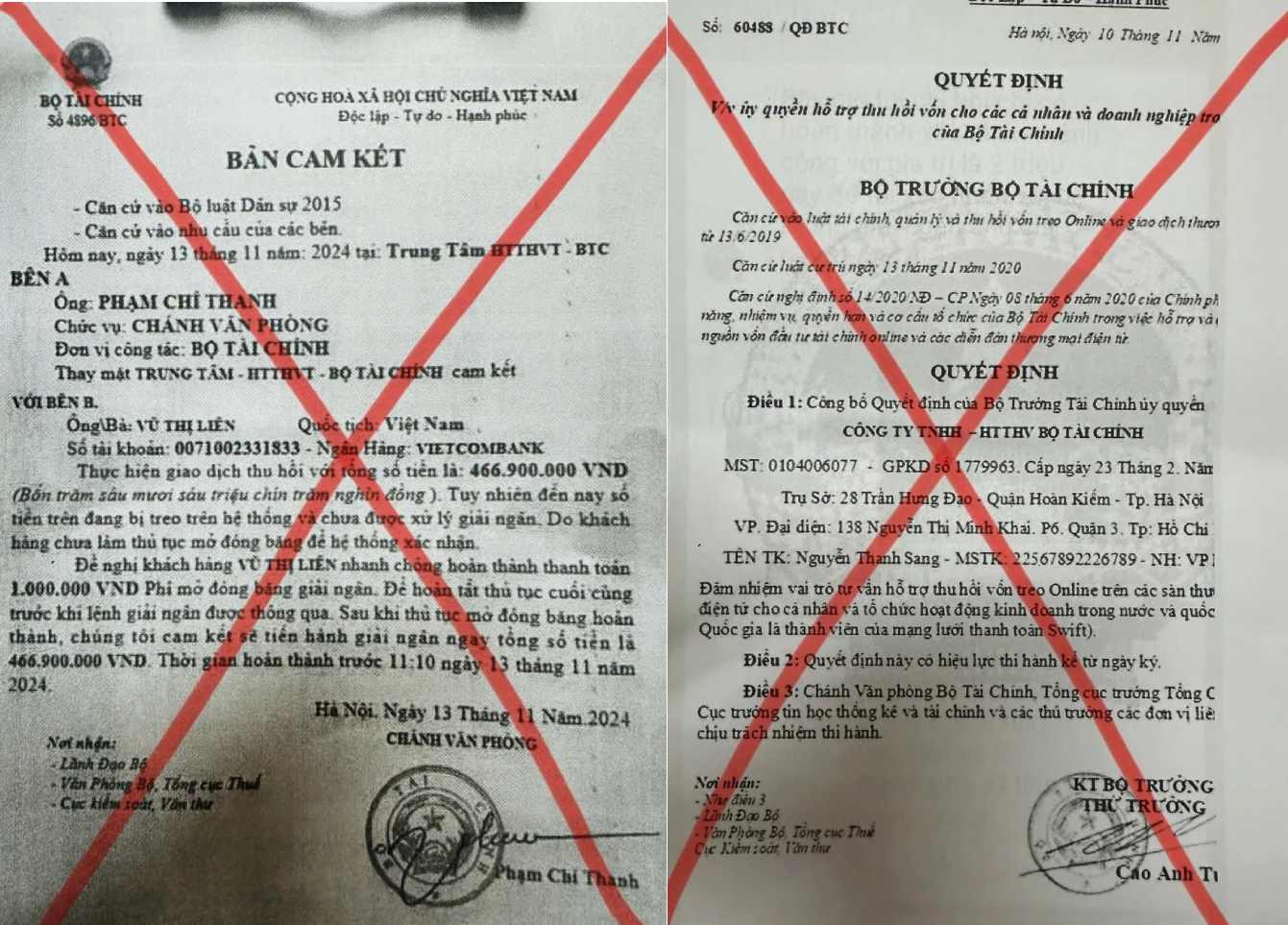Old tricks in the new cover
In a social network group with hundreds of thousands of members, Mr. Nguyen Van Binh (character's name has been changed) spoke up to share the story of being scammed into receiving "tax documents" sent home via SPX Express service.
According to the story, on the morning of September 28, a person claiming to be a shipper called to inform him that there was an envelope sent from the Tax Department, the recipient needed to pay 150,000 VND for the delivery fee. "I was surprised because there was nothing related to taxes, but the envelope was clearly printed with the State Tax Department, there was a blurred red seal so I still believe it," Mr. Binh shared.
After receiving the envelope, he checked. " Inside, there was only one photocopy of the document without anyone's name, printed with blackboard, photo signature, and paper without clear title. I immediately asked the postman to return it to the place of sending and posted a warning to everyone, said Mr. Binh.
Not only Mr. Binh, many victims have paid money, even almost being scammed out of a larger amount of money because they thought it was an important document of a State agency.
"The postman said it was a document of the Tax Department, if I did not receive it, it would be returned, so I also paid. When I got home and opened it, I found it was a blurred photo, which had nothing to do with me. The amount of money is not large but feeling cheated is very uncomfortable, said Ms. Nguyen Thi Hoa, a resident of Cau Giay ward (Hanoi).

5 "golden rules" for digital safety
Meanwhile, regarding the situation on Facebook where information is spread "The Tax Department sends an official dispatch via SPX, the recipient must pay 80,000 VND, inside is photocopy documents from the State agency", the Tax Department affirmed that this is fake information, the types of envelopes such as the disseminated images are not issued or used by the tax authority. People absolutely do not pay or accept these envelopes, and should immediately report to the nearest authorities if someone contacts them to claim delivery fees. The Tax Department also recommends that post offices and transport units, when discovering packages suspected of counterfeiting the tax sector, need to inform the authorities to coordinate in investigating and handling.
The Tax Department also emphasized that the Tax Authority should never require the submission of citizen identification cards, business registration licenses or tax registration certificates to update information; the tax authority should only send official notices via the registered taxpayer's address, not request verification outside the system; people should not follow any instructions from unofficial sources; when needing to update administrative address information, taxpayers should contact the business registration agency in accordance with regulations; any problems need to be resolved via hotline or support email published on the Tax Department's Electronic Information Portal.
The Tax Department recommends that people and businesses always carefully check the source of information before providing personal data to avoid being taken advantage of by scammers for profit.
Lieutenant Colonel Dao Trung Hieu - Doctor of Criminology - said that according to recent statistics, nearly 80% of Vietnam's population uses the internet, including about 76.5 million social media users. From there, he believes that, in addition to real life, many people are having a parallel life in cyberspace, because in this space, people can buy, sell, work, communicate, store information...
According to the doctor, each citizen needs to equip themselves with digital safety skills. Meanwhile, for criminals, he pointed out a very common trick: impersonating police officers, prosecutors, courts, impersonating banks, documents of state agencies...
He pointed out 5 "golden rules" for digital security, including: Strong password; 2-step authentication; software updates; source verification and limited sharing. When encountering an incident, suspecting that he or she is being scammed, according to Mr. Hieu, the victim needs to remember the 5-step process carefully, respectively: Stop the transaction; store evidence; report to the bank; report to the police and follow the handling process.










